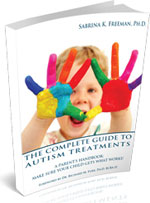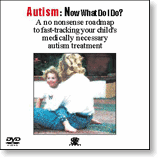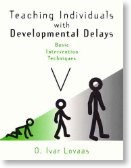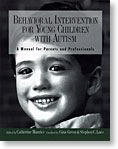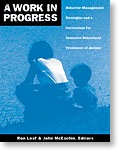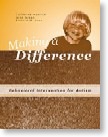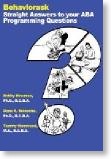Does Asperger's syndrome deserve to be eliminated?
19/08/11 12:57
When a child is diagnosed with autism, the last issue on the mind of a parent is the process by which the diagnostic criteria for an autism spectrum disorder is established; however, it is crucially important to understand that as science moves forward, the psychiatric Diagnostic Statistical Manual (DSM) changes over time. These changes have both positive and negative ramifications for everyone in the autism community including parents of children on the autism spectrum.
Take the latest debate regarding the proposed revision of the diagnostic manual that would create the DSM-V (thereby replacing the DSM-IV). The psychiatric establishment want to eliminate the diagnosis of Asperger’s syndrome and cluster all children afflicted with an autism spectrum disorder together. They would all receive the same diagnosis: autism. This suggestion is being offered for two reasons, one clinical and one political:
1) The Clinical Justification
Most diagnosticians can’t discern the difference between Asperger’s syndrome and autism in some clients (particularly when they reach adulthood); therefore, the only way they differentiate between the two is by looking at their history of language development. Those clients who did have a language delay would be diagnosed as having high functioning autism. Those clients who did not have a language delay would receive a diagnosis of Asperger’s syndrome. To many diagnosticians, the history issue is problematic. I quite agree.
2) The Politics
Many young children with Asperger’s syndrome will be unable to access treatment for their condition (treatment that will make a huge difference in their lives) because both private and public health insurance companies, and the educational system often attempt to deny children with Asperger’s syndrome the treatment and education they require. When a young child is diagnosed with autism, that is considered a “safer” diagnosis because, theoretically, it should be easier to access treatment (I use the word “theoretically” since in some parts of the world, treatment is not even recognized as something that exists!).
It would be very unwise to remove the diagnosis of Asperger’s syndrome from the DSM since the diagnosis of autism and Asperger’s syndrome are quite different (even though they do share some symptoms). Here’s my solution (and I doubt it will be popular with many clinicians because it fundamentally changes the way we look at Autism Spectrum Disorders):
1) Stop thinking of autism as a static disorder
Once an autism diagnosis was a very stable diagnosis. In other words, it did not change over time. However, with intensive behavioral treatment (IBT), science has provided us with strong evidence that these outcomes do change. A child with autism who has done very well in an IBT program may have suffered from a severe language impairment; however, as an adult, that person is very verbal and looks to everyone like they have Asperger’s syndrome. Instead of looking at history to condemn them to a diagnosis of autism, why don’t we simply diagnosis them as they are today? In the best case scenario, they may not even meet the criteria of Asperger’s syndrome.
2) Keep Asperger’s syndrome on the Autism Spectrum as it is in the DSM-IV
It is crucially important for children with Asperger’s syndrome to access IBT (customized to their functioning level). After they complete treatment, then these children need to be re-diagnosed when they reach adulthood. If they have progressed considerably well in treatment and no longer meet enough criteria for Asperger’s syndrome (which is still on the autism spectrum), it is time to rejoice!
3) Do not disturb those who may have an Asperger’s shadow syndrome
It is time to stop stigmatizing people who are somewhat quirkly, but very functional, and happy in their lives with the diagnosis of Asperger’s syndrome. Our world is large enough to accommodate people who are eccentric without trying to “help” them by manufacturing pathology.
In short, why don’t we embrace the culture of success instead of the calcification of heartache?
